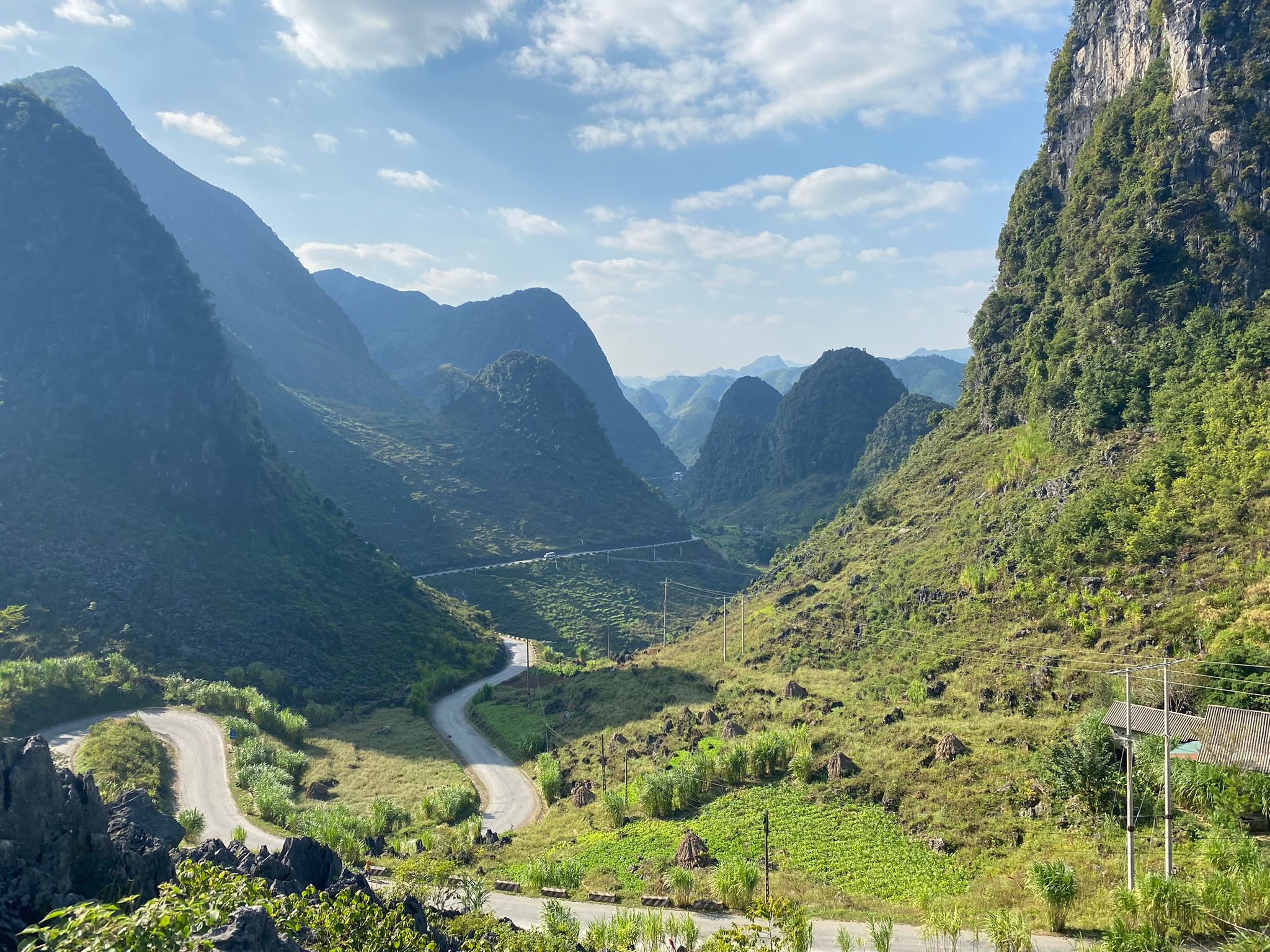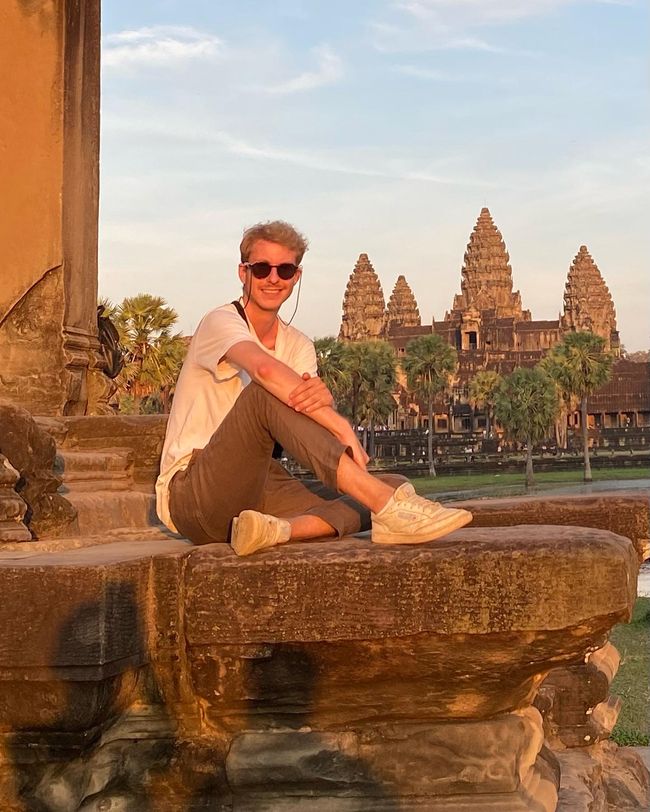August 1st, 2023 – Humpback whales, manta rays and turtles in Ningaloo Reef
Објављено: 28.08.2023
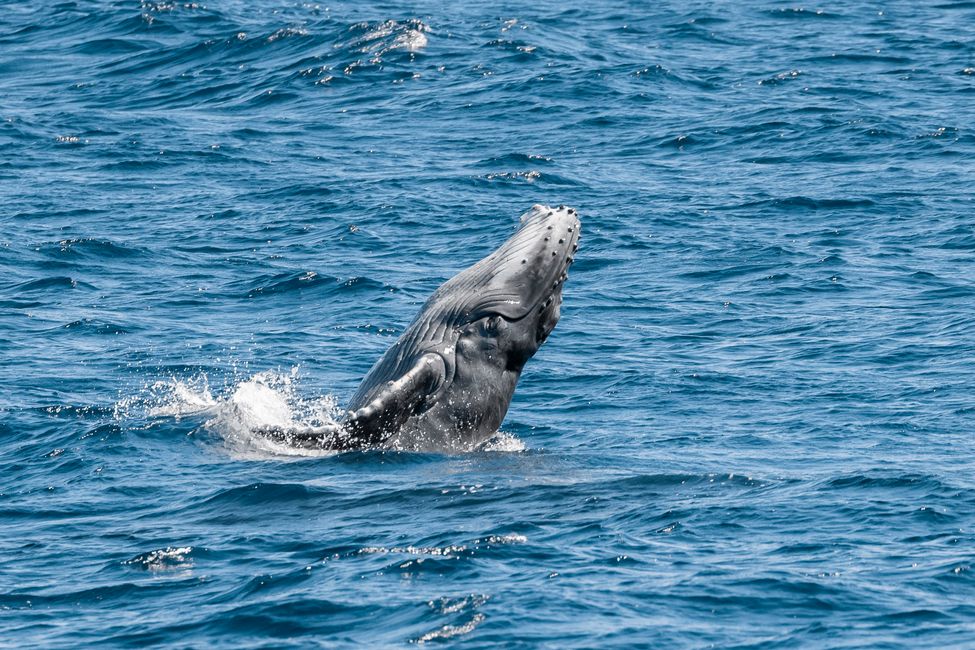
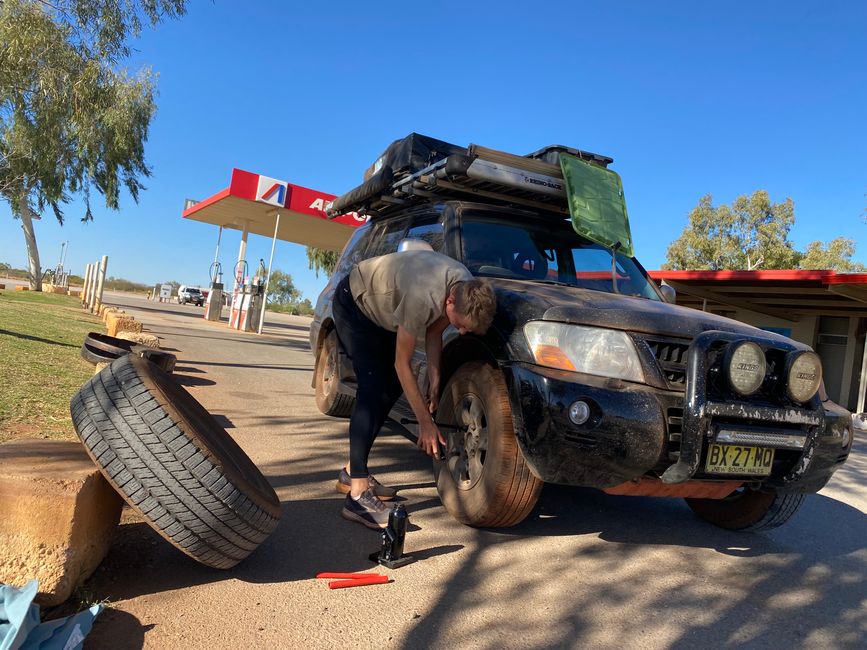
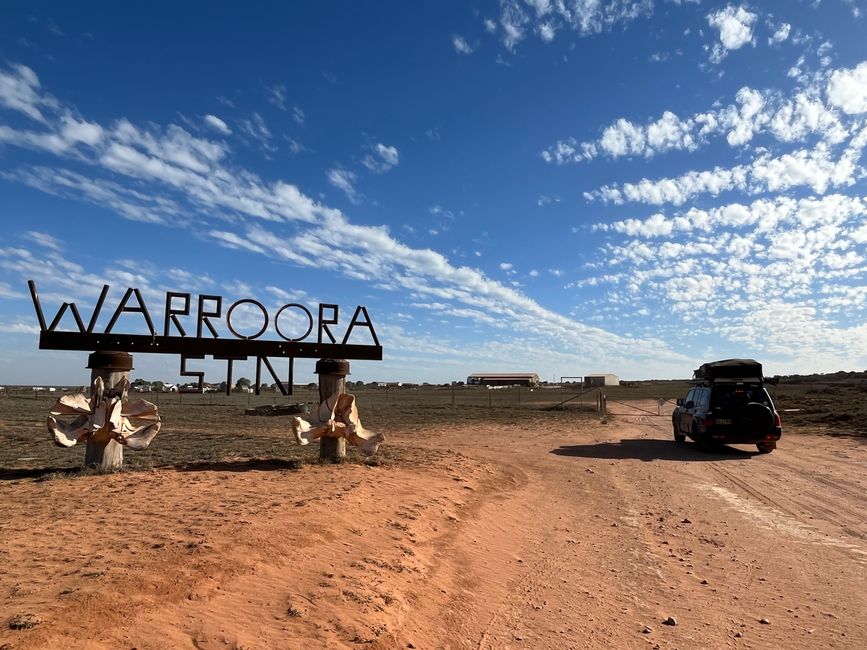
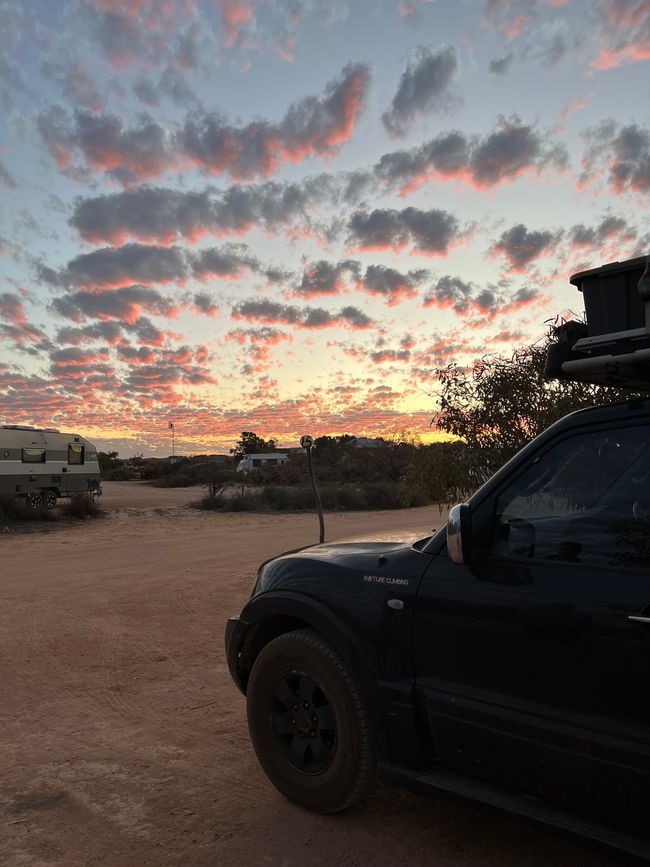
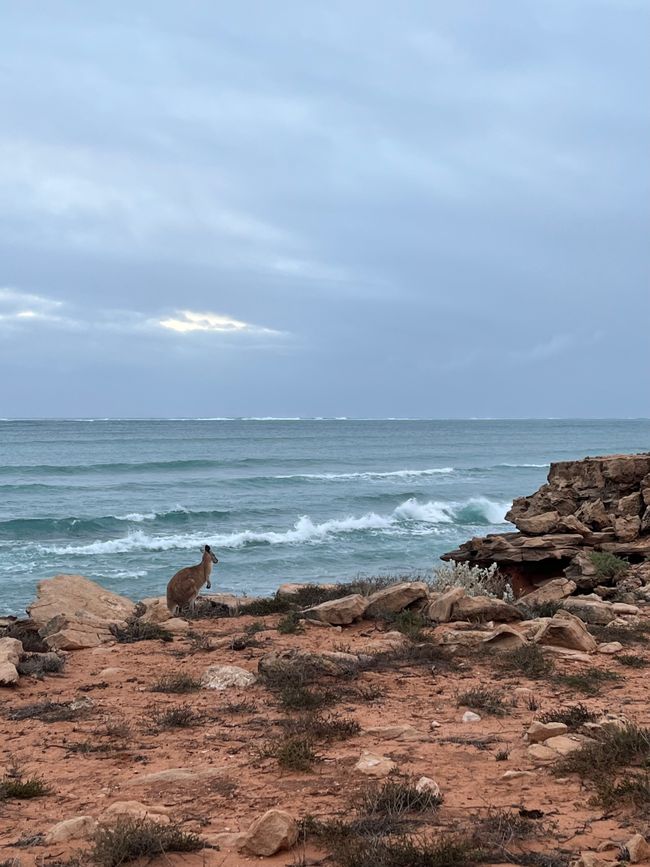
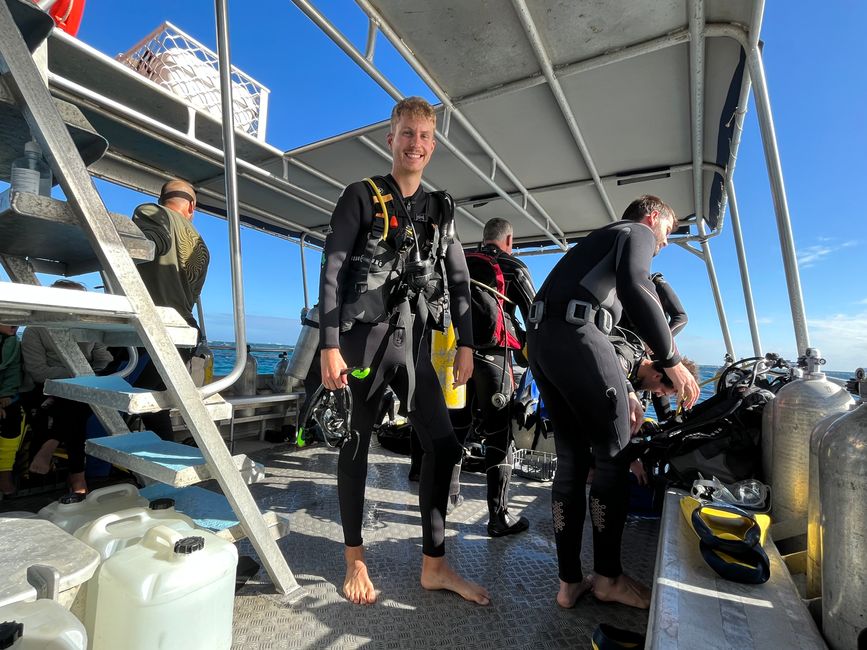
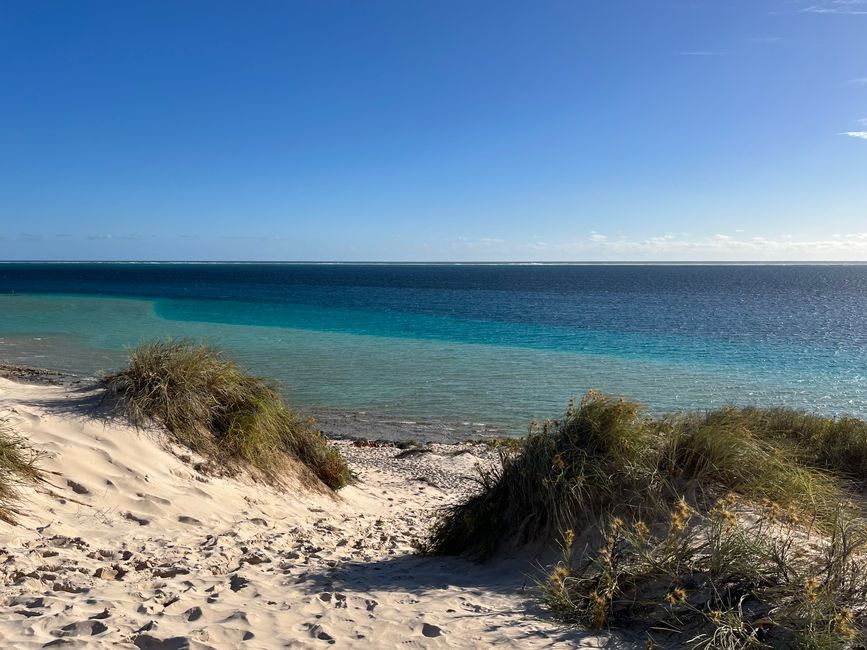
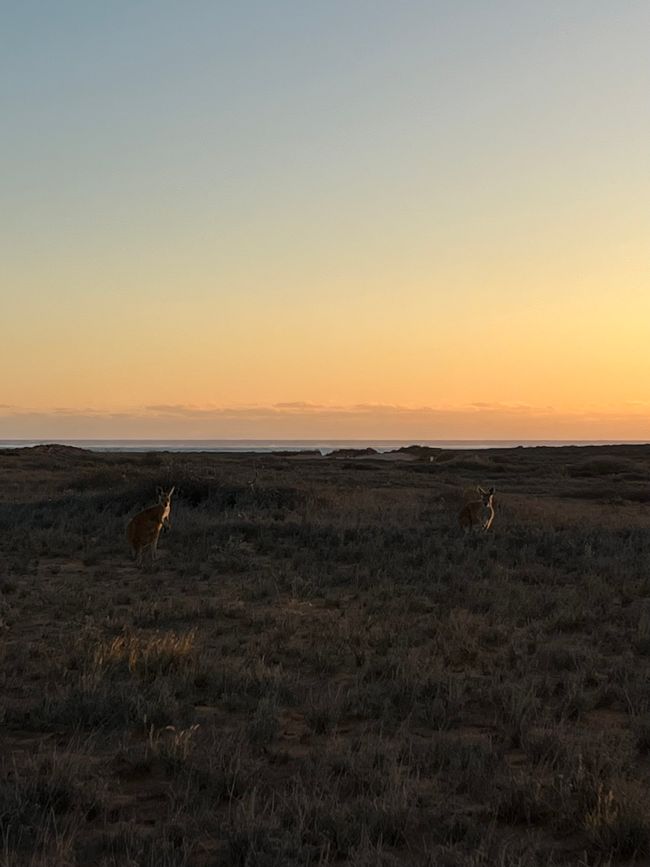
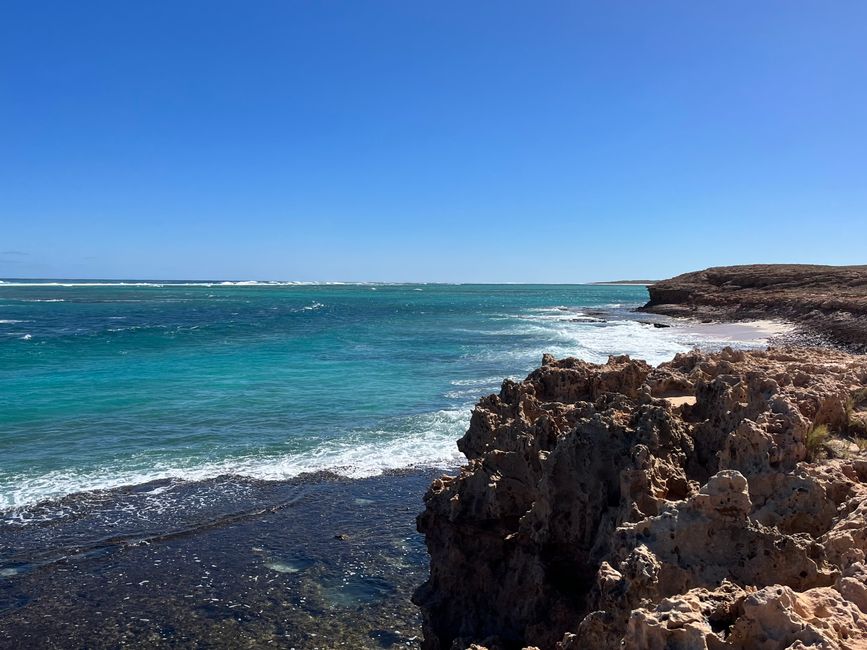
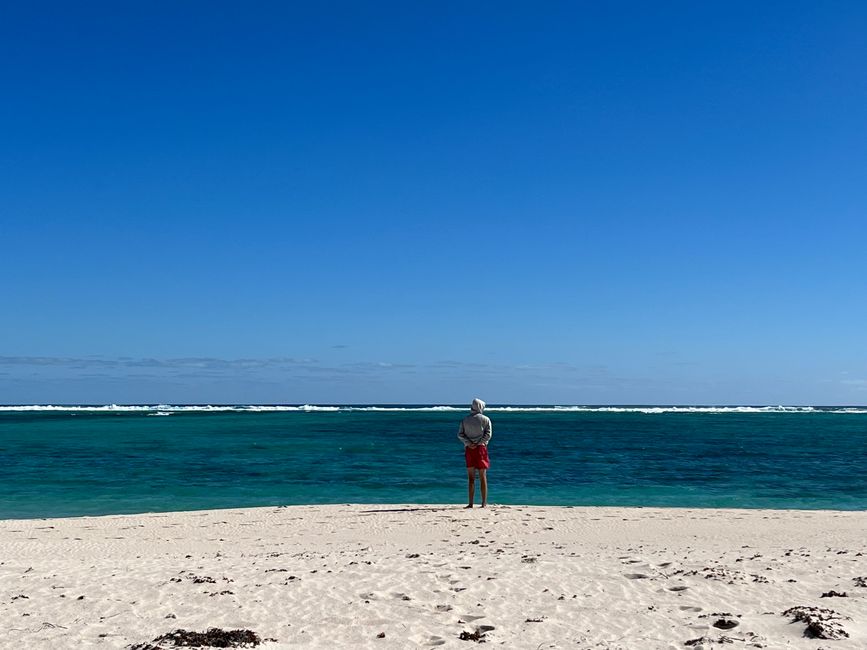
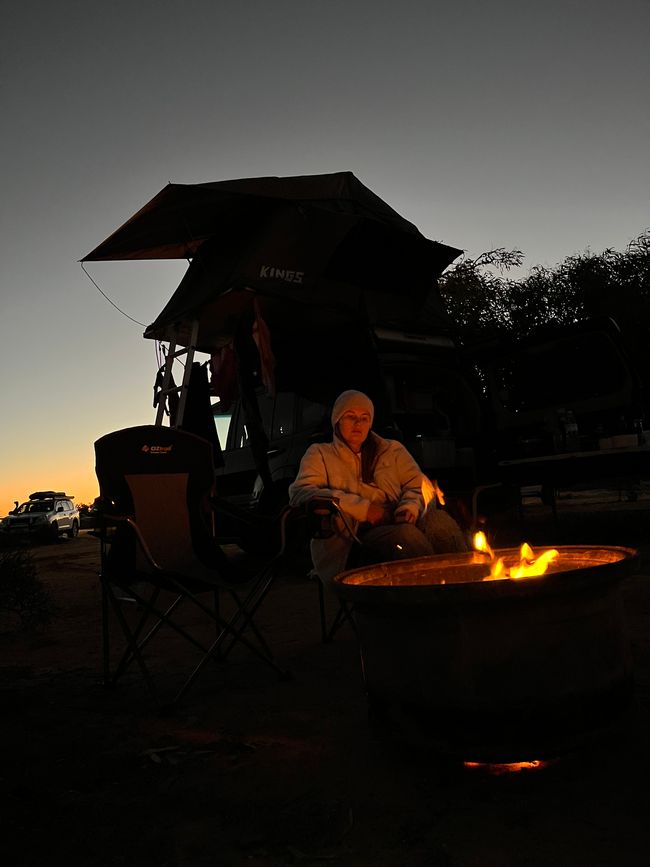
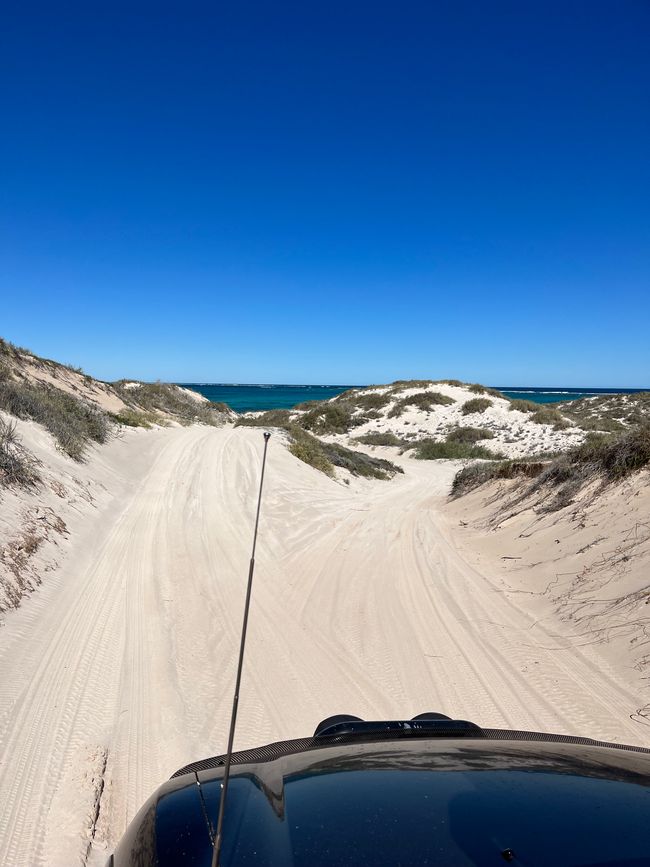
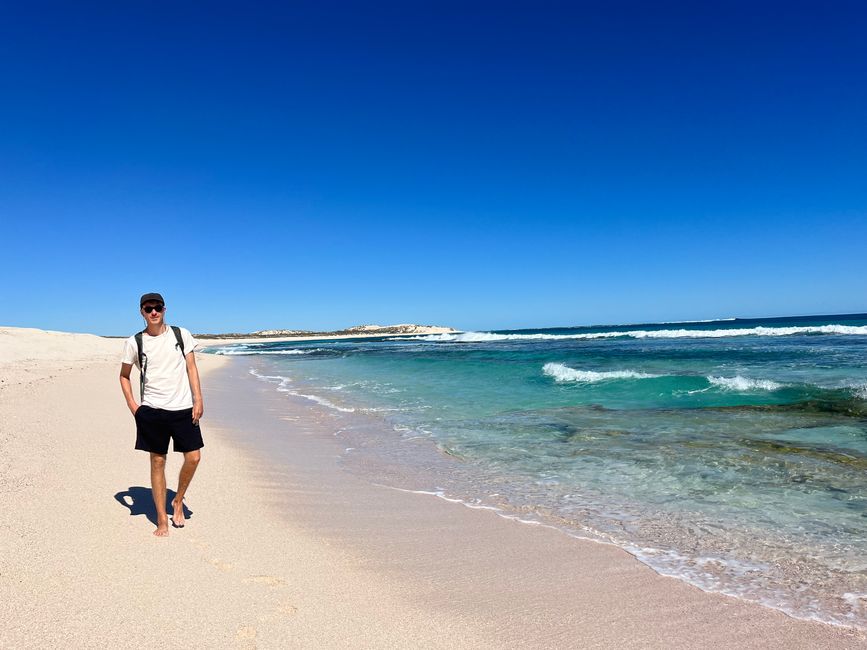
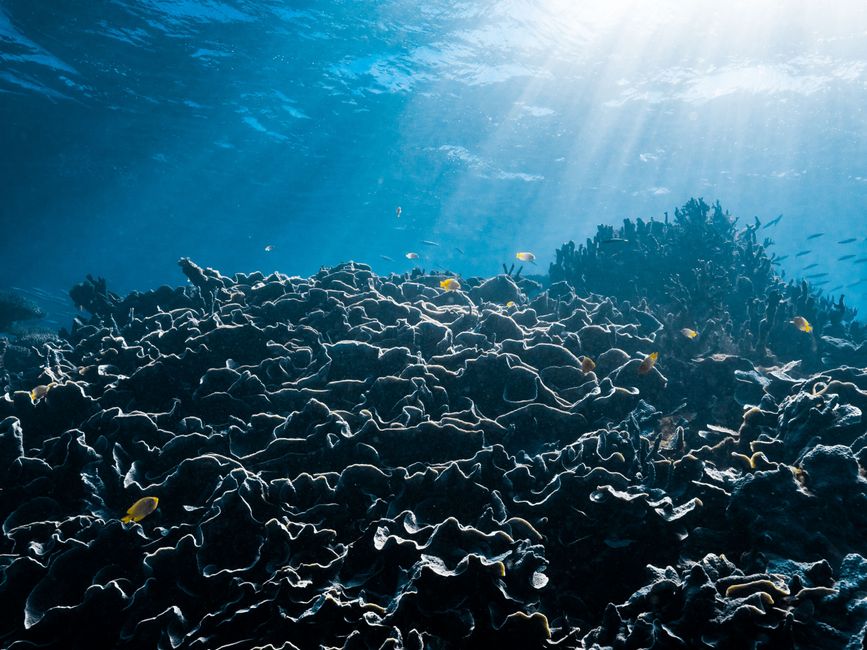
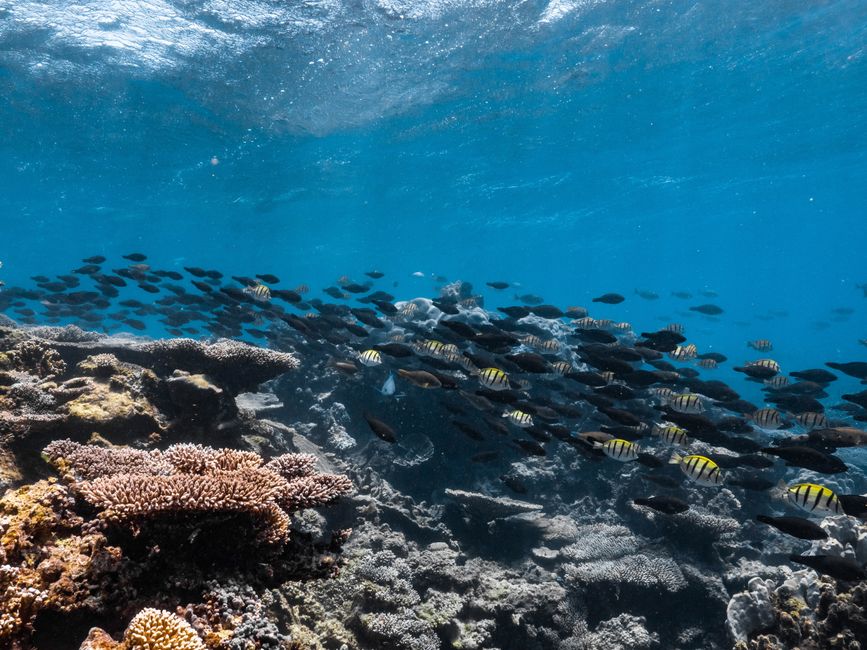
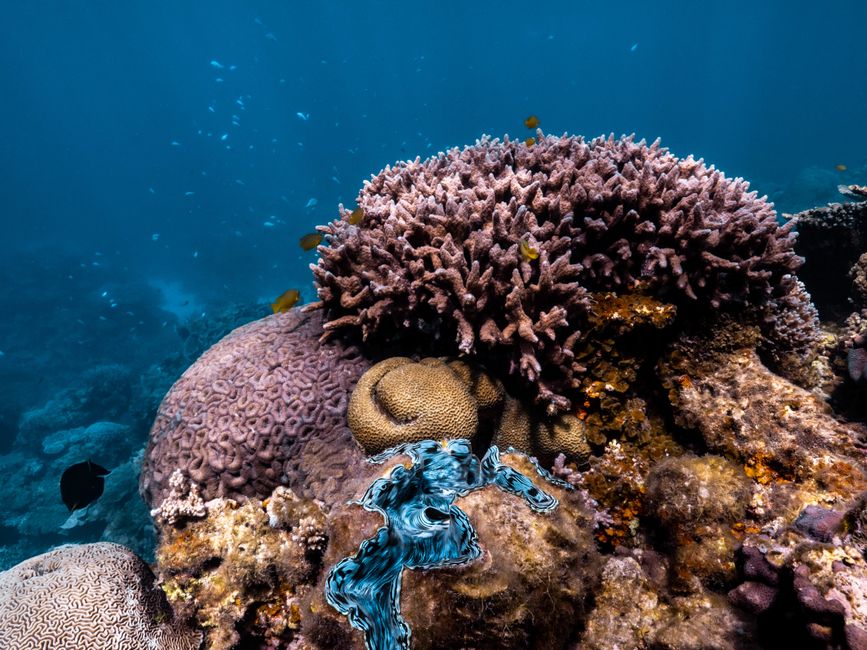
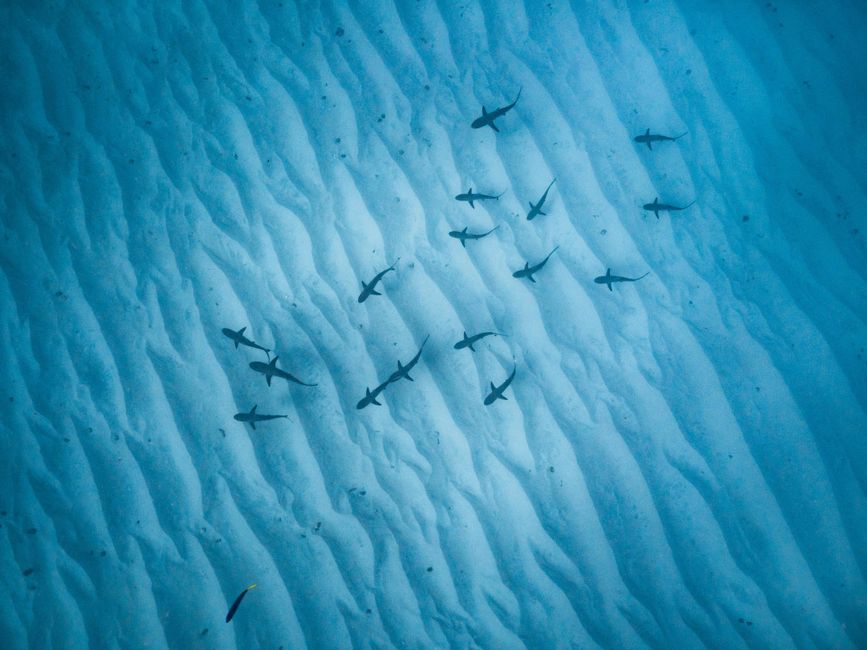
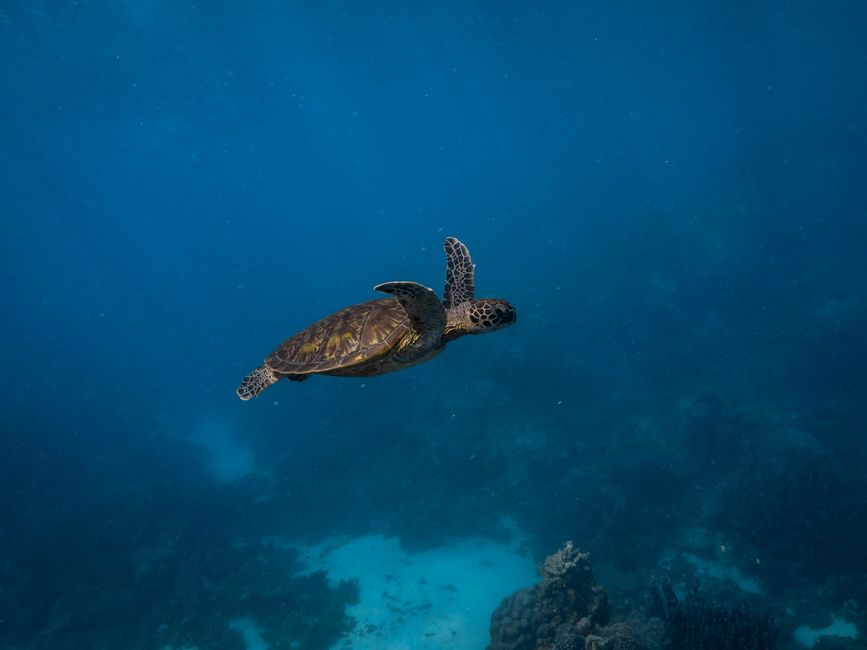
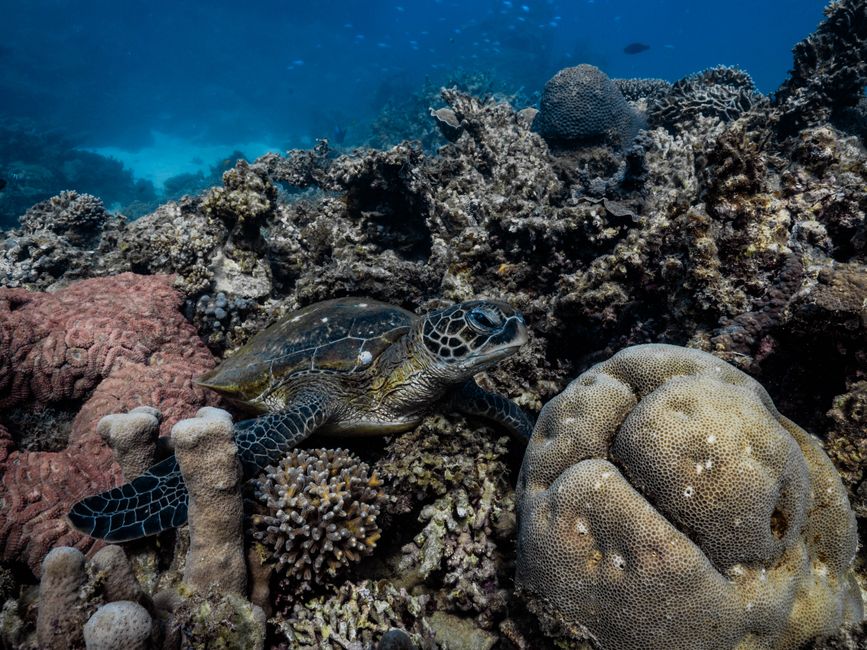
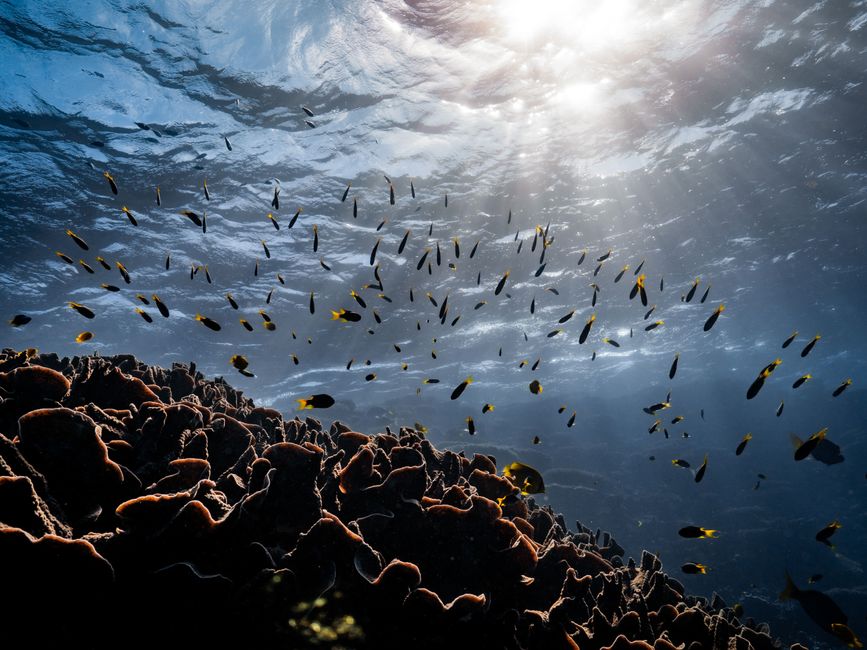
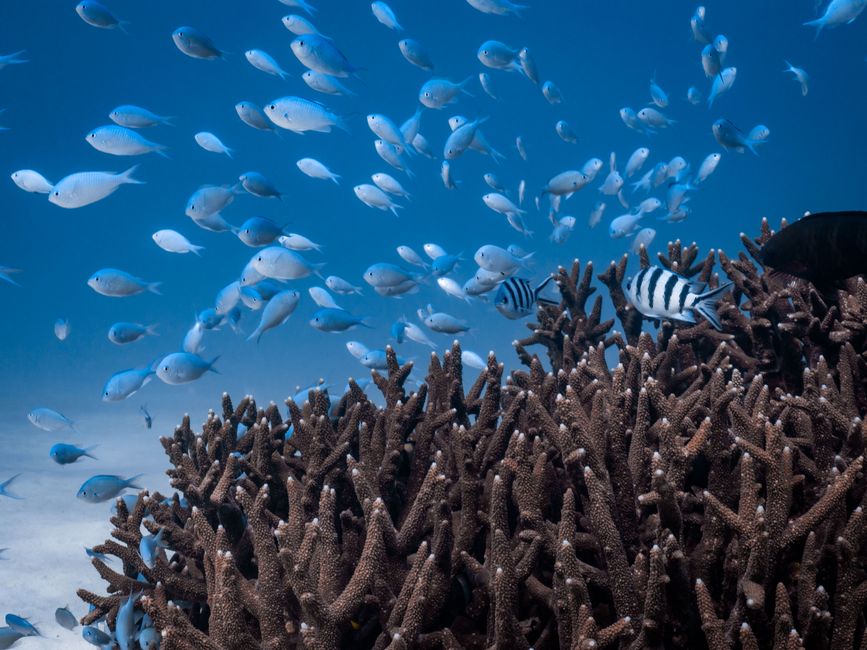
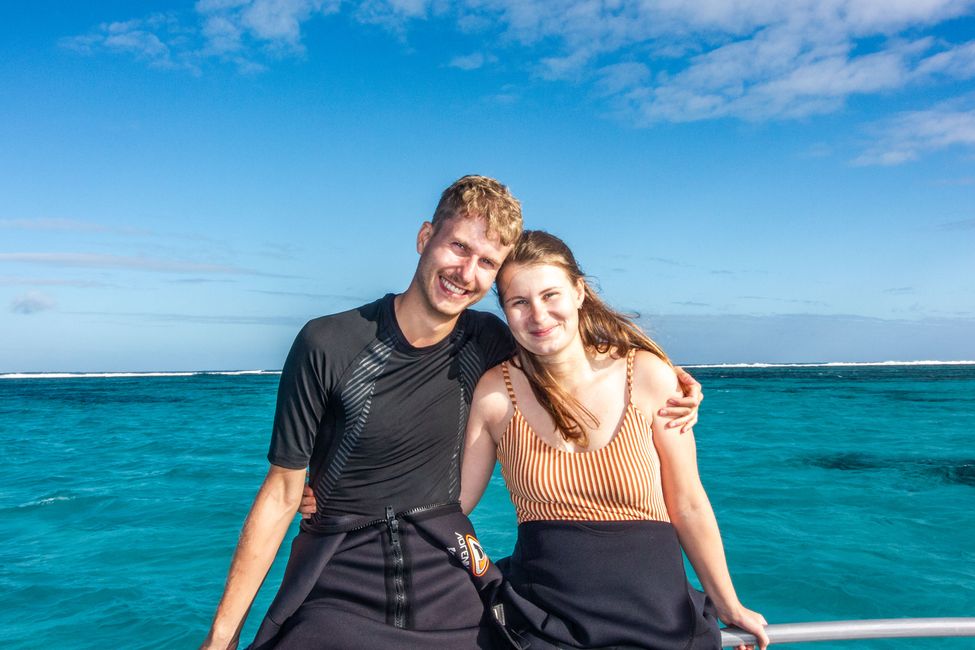
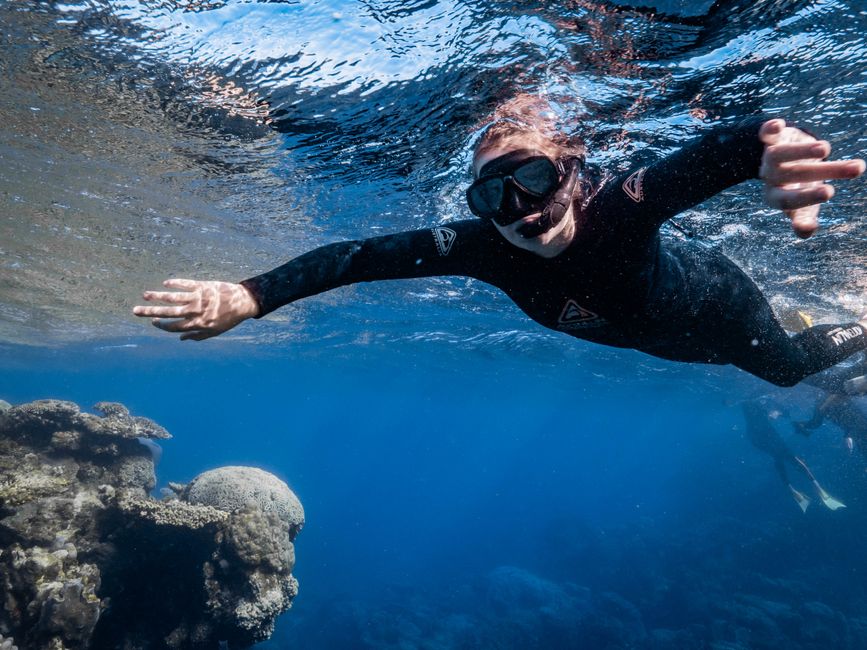
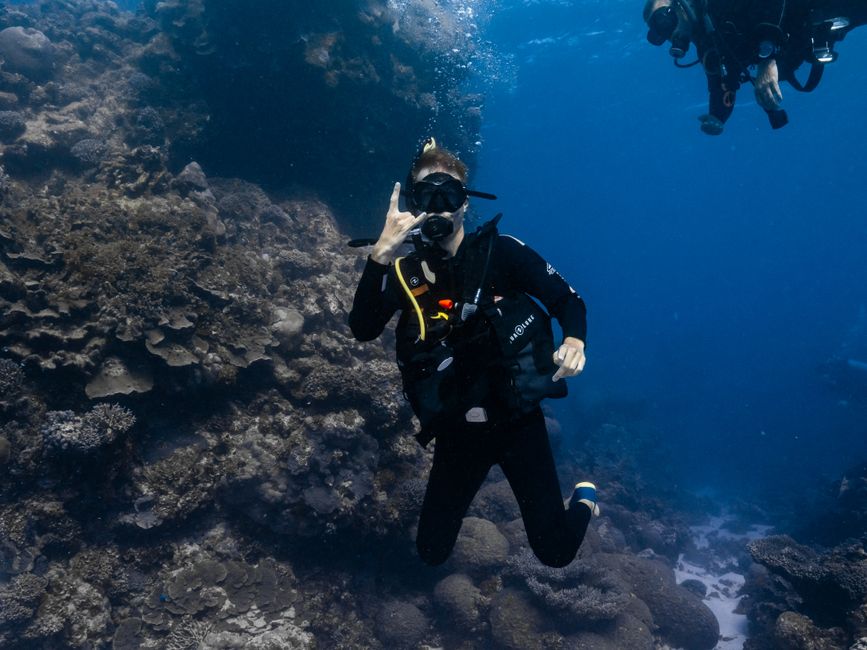
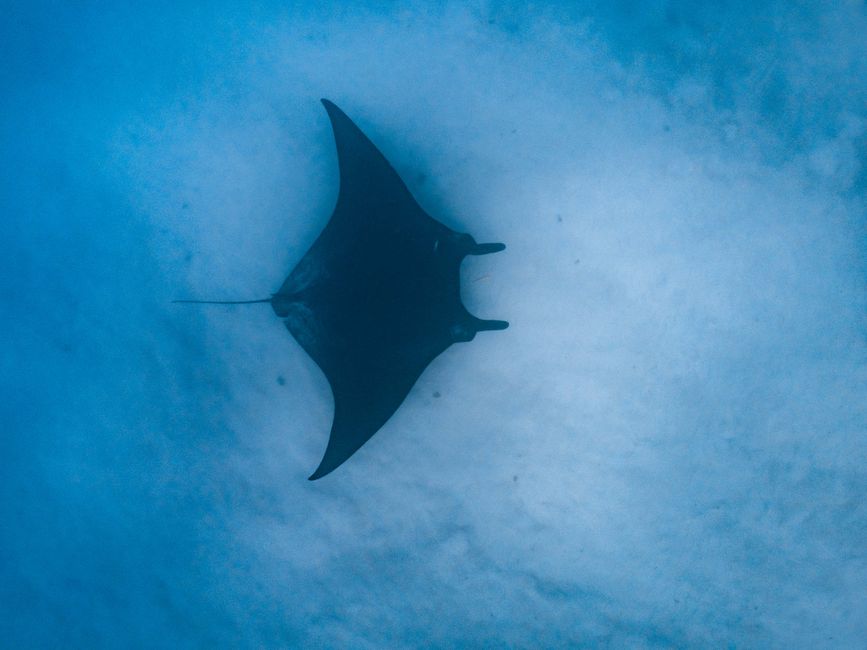
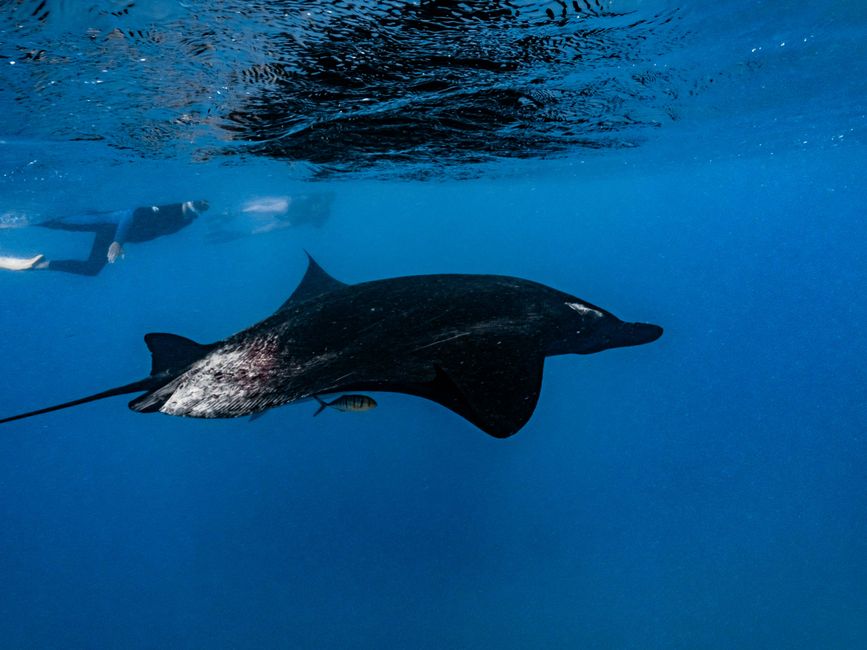
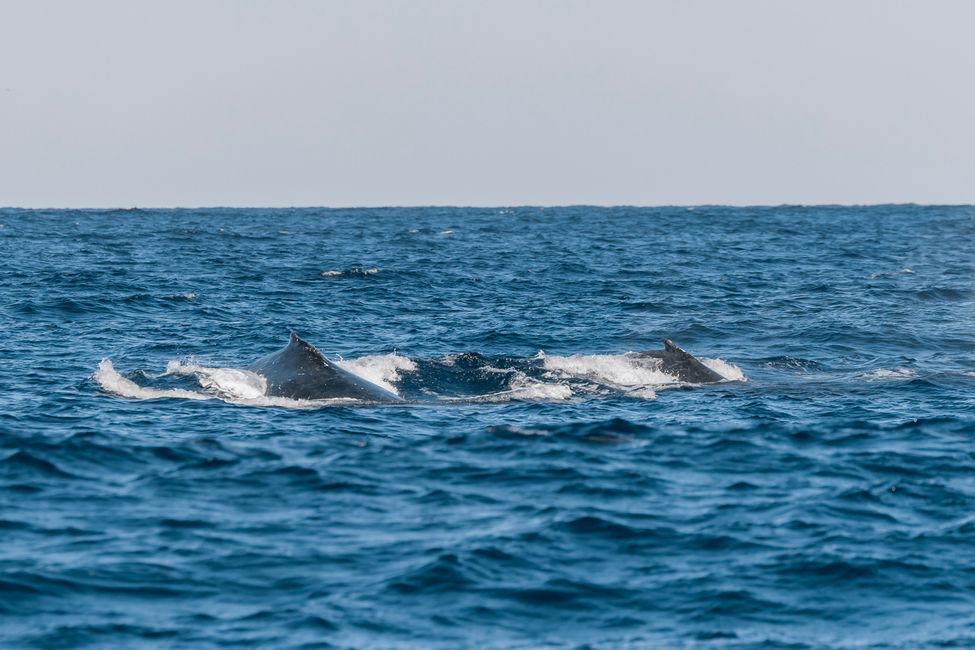
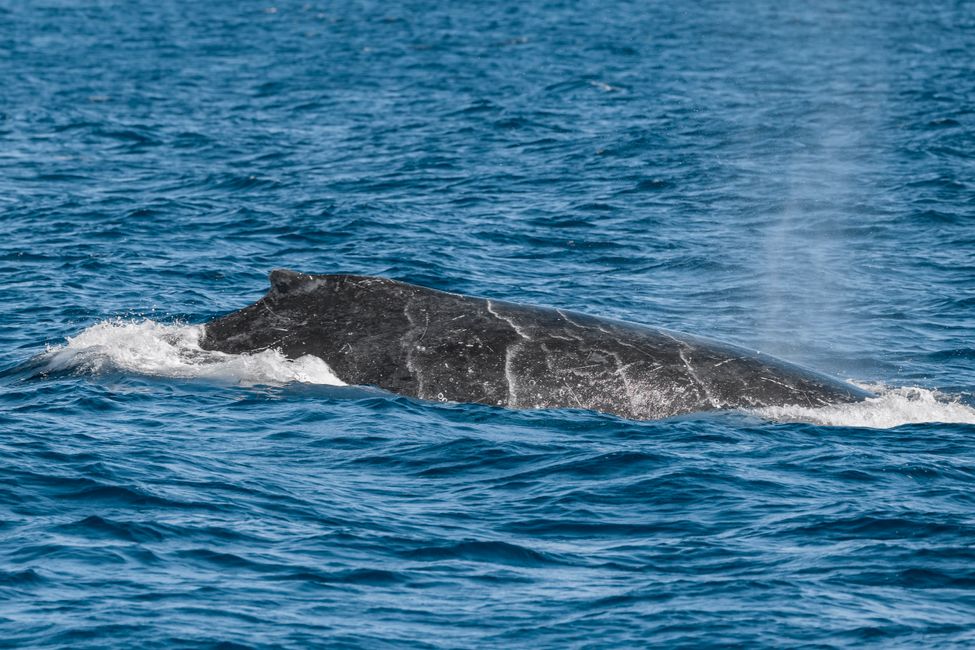
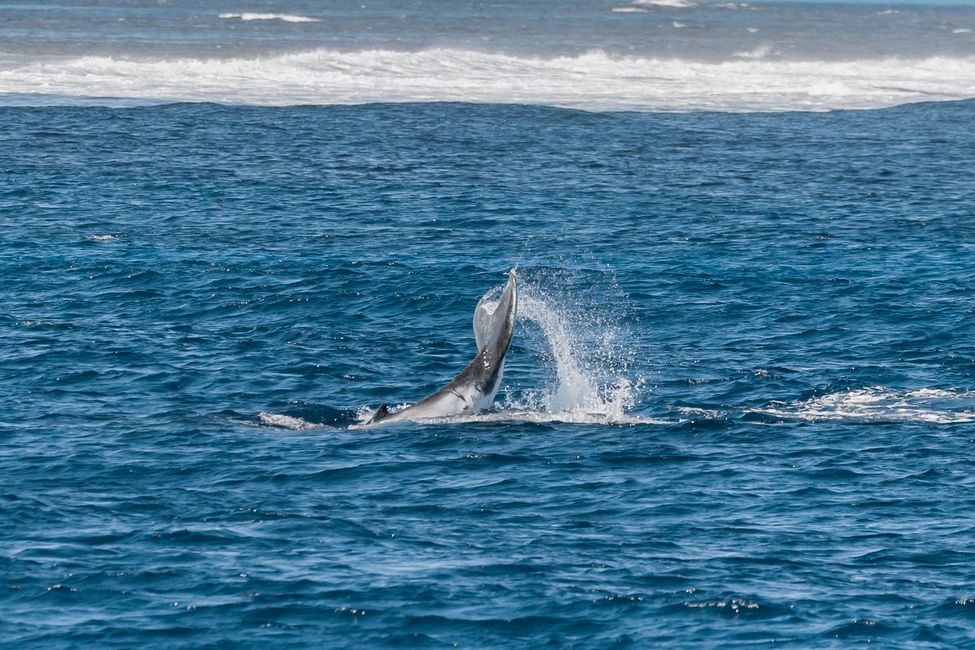
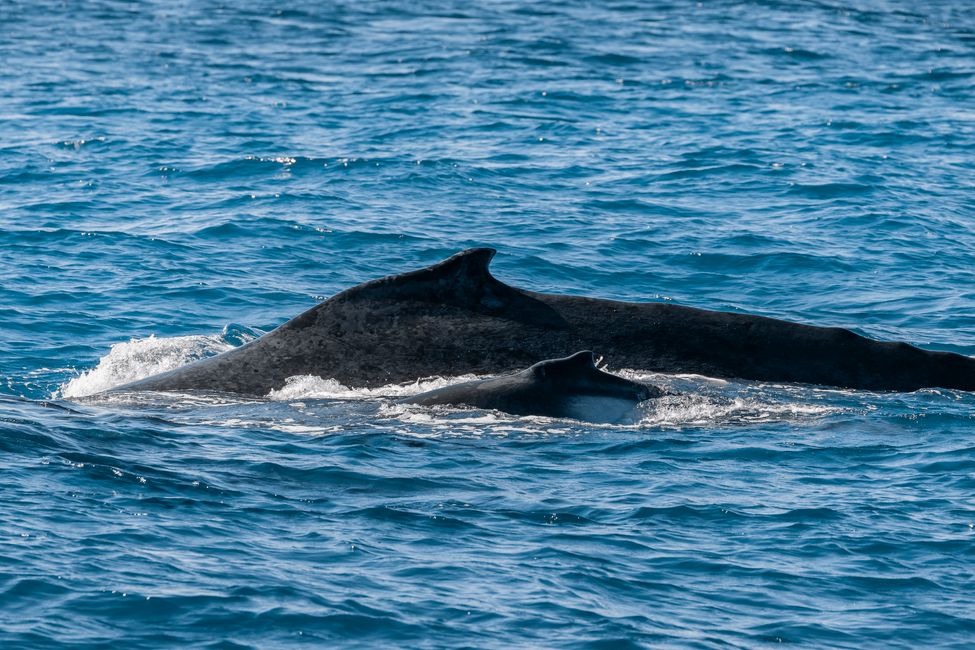
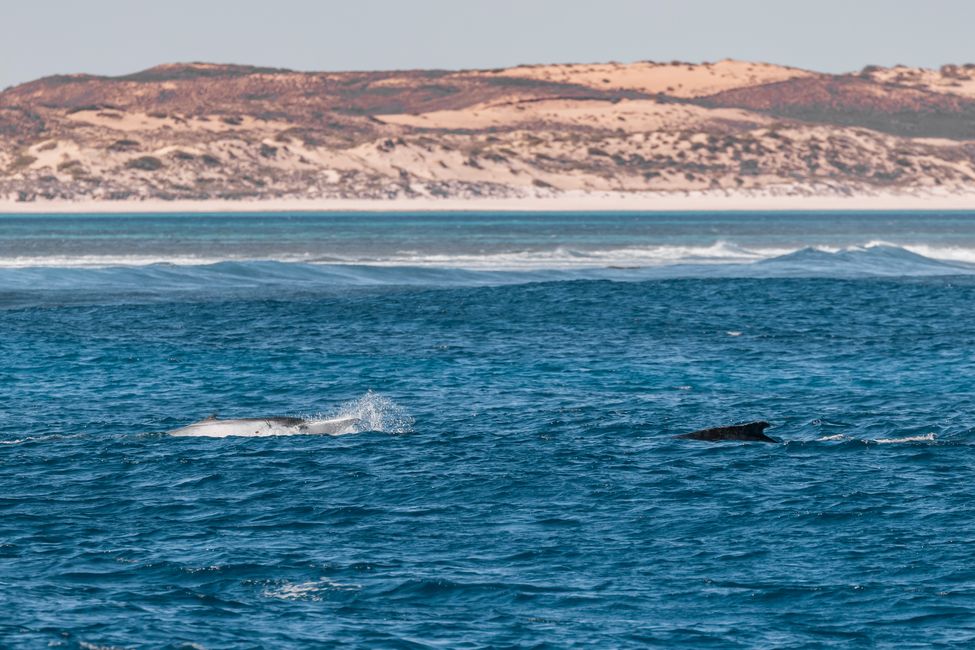
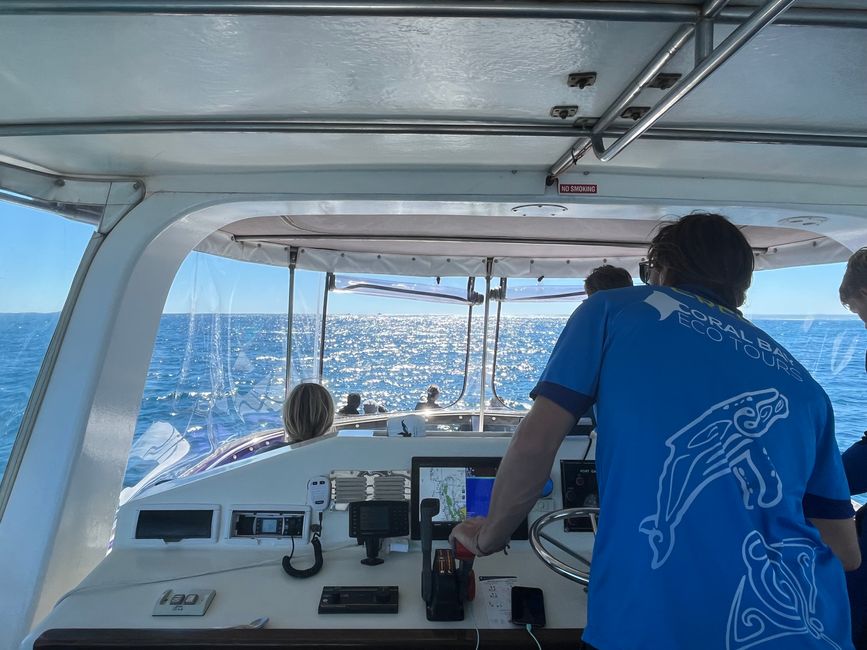
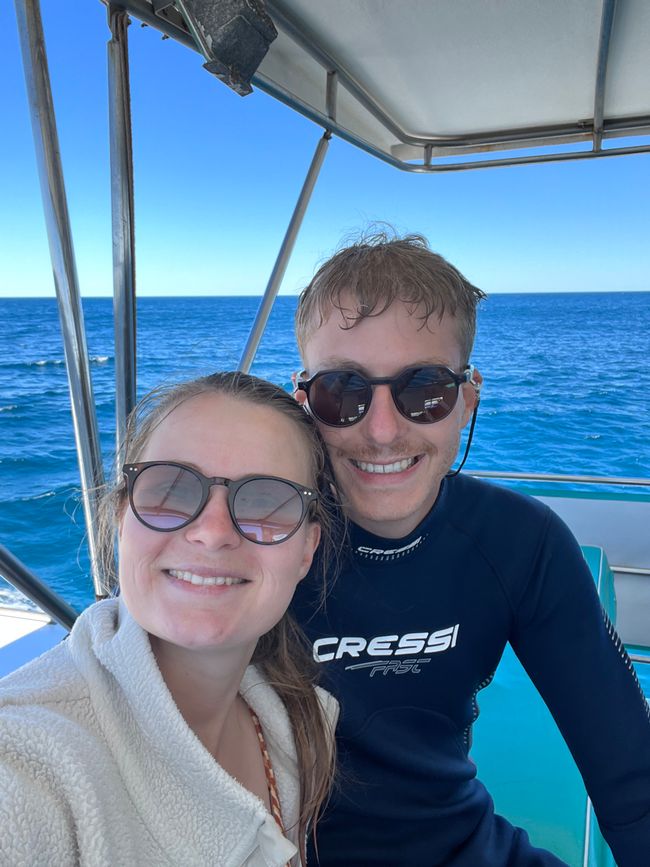
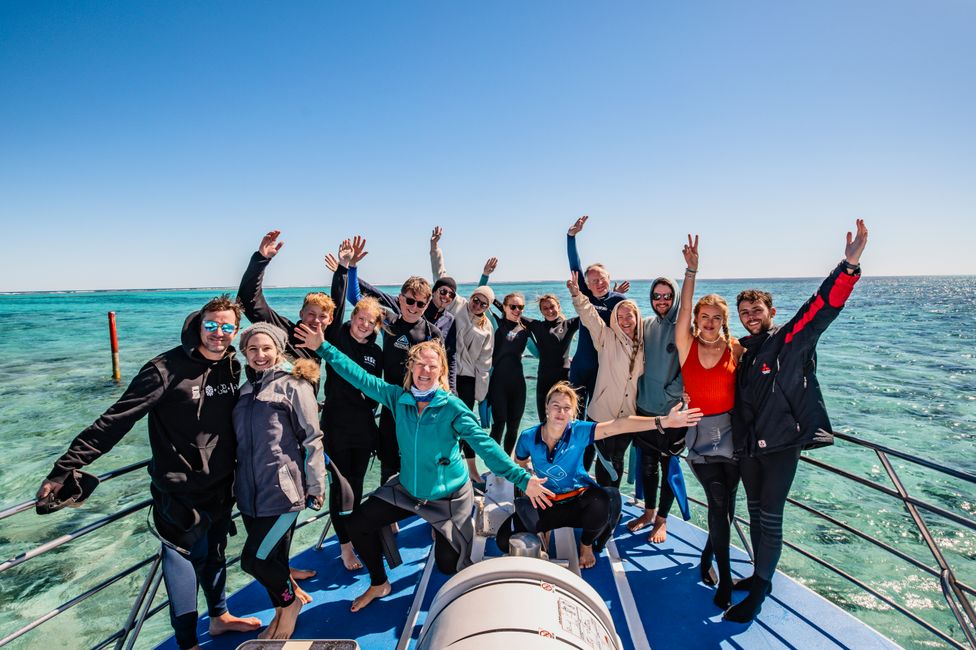
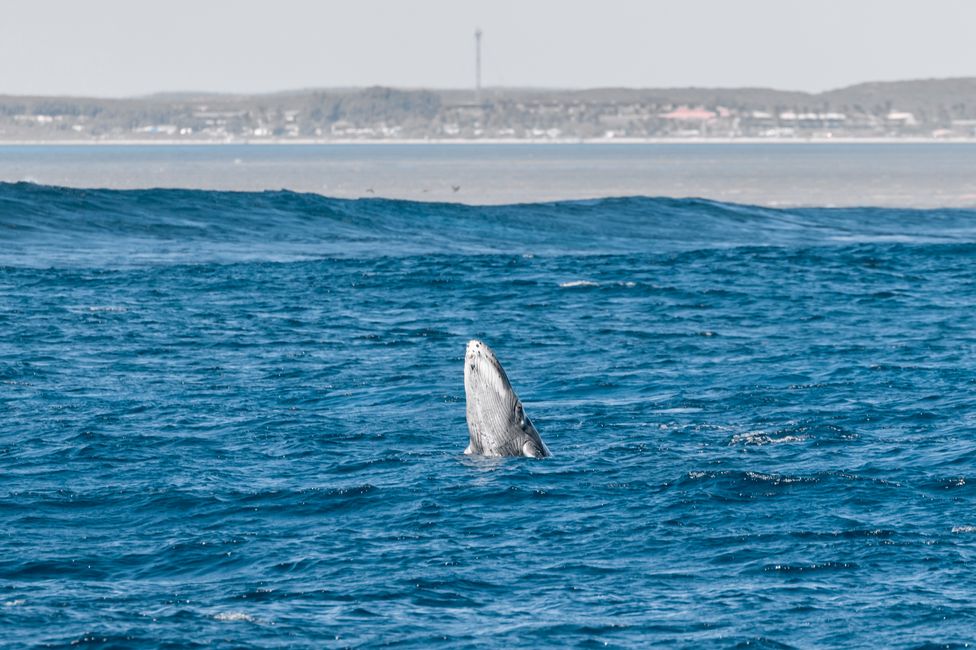
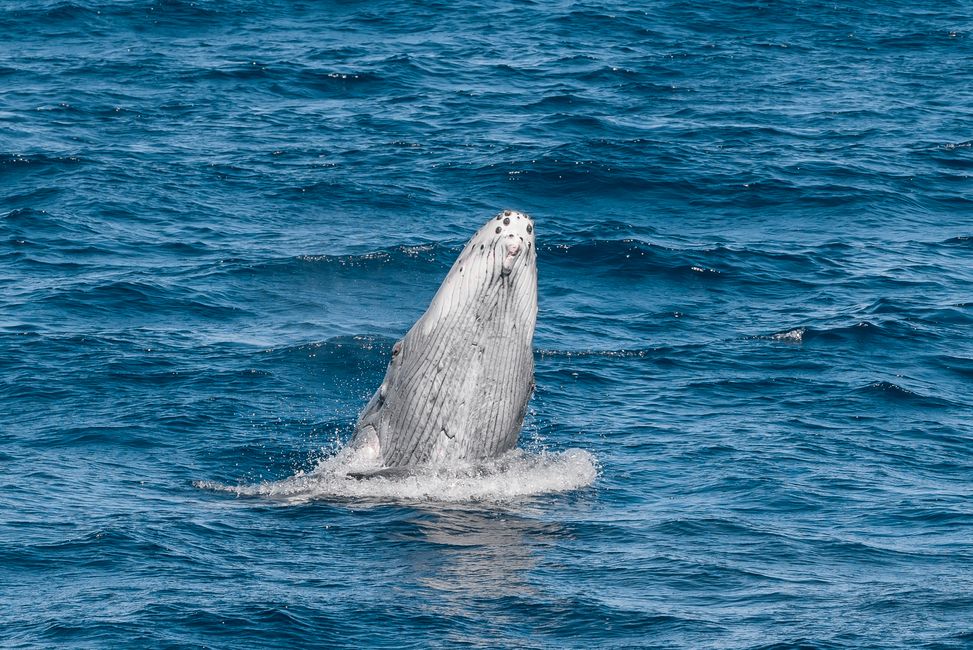
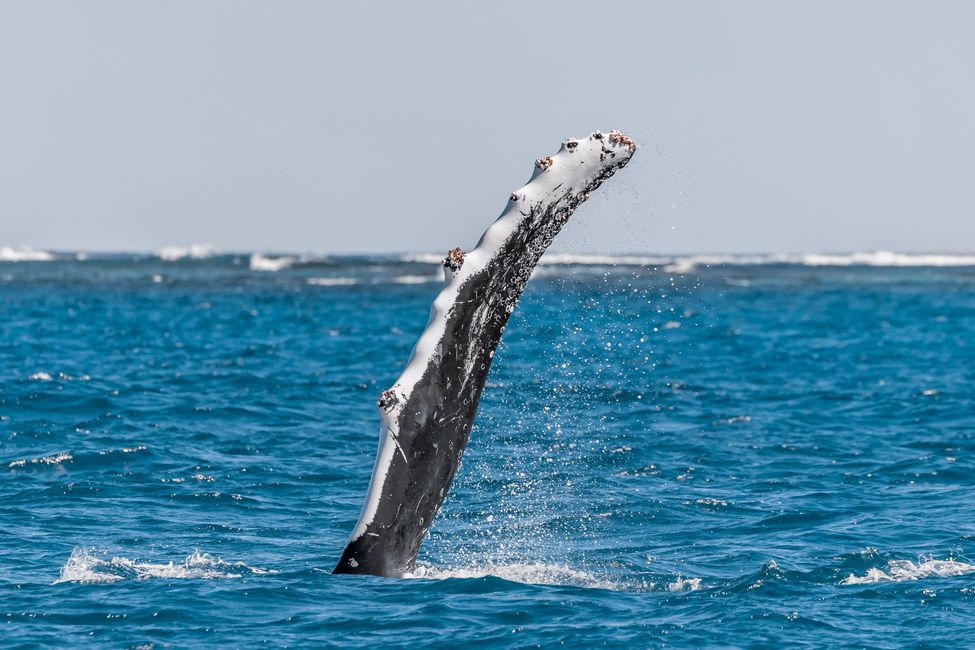
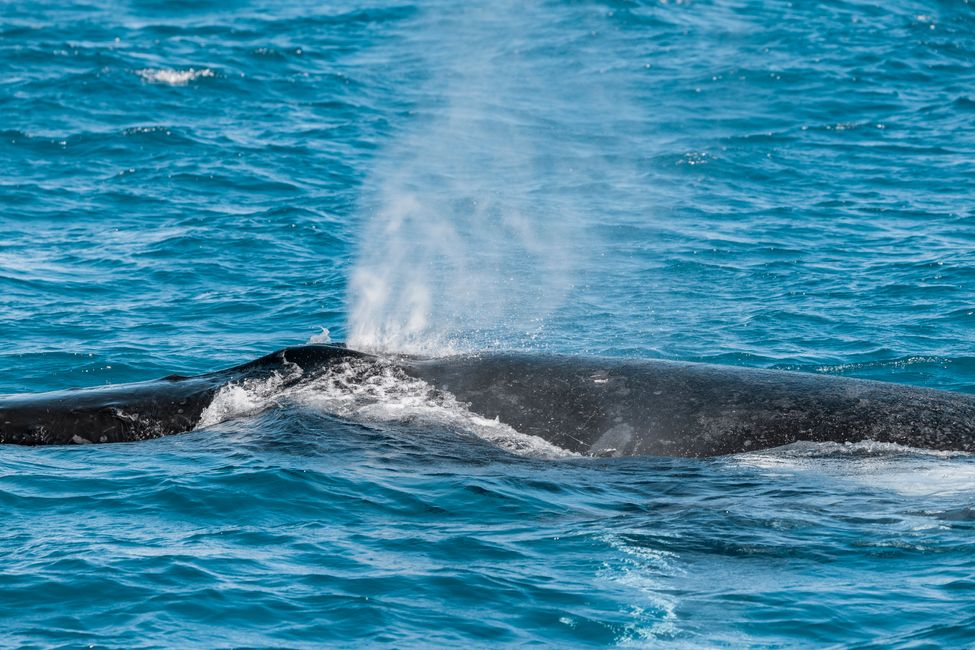
Пријавите се на билтен
After traveling a lot in the outback recently, it was time for some sea air again. The Ningaloo Reef was perfect for this. As one of my biggest goals in Australia, we wanted to spend almost a week here and marvel at the facets of the reef. In order to cover the 639 kilometer long stage to Coral Bay, the entrance to the Ningaloo Reef, in one day, we set off from Kanijiri National Park at 7 a.m. in time for sunrise. But as is sometimes the case with plans, things turn out completely differently. After we had covered about half of the route, something that was actually long overdue happened: we had our first flat tire. After around 10,000 kilometers and a few off-road tracks, it had to happen at some point. When we got out at a gas station, Helene heard the dreaded hissing from the right front wheel. Less than five minutes passed before the problem was visible. The culprit was a nail stuck in the tire. Luckily, we were of course well equipped for any eventuality. The jack, turnstile and spare tire were quickly unpacked. But what is the best equipment worth if the people working with it have never changed a tire. Dad once showed me how to change a tire, but perhaps my concentration was a bit limited at the time. Well, long story short, we promptly used the jack incorrectly. However, luck favors the stupid, so it took less than two minutes for an Australian truck driver to take care of us and, without hesitation, lay down under our car to lift our Pajero into the air. From that moment on it was almost child's play, the wheel nuts were quickly removed, the broken tire was removed, the new one was put on, the wheel nuts were tightened again and the car was lowered. Our first tire change was done and the journey could continue. There was only one small problem, as we no longer had a replacement tire from that moment on, but we didn't want to drive long distances without it, so we needed an appointment at a tire dealer. And that can sometimes become a challenge here. As is well known, the distances between places in Australia are usually very long and the smaller places themselves are only equipped to a limited extent when it comes to such topics. You probably already know what I'm getting at, Coral Bay probably still doesn't have a tire dealer. And the nearest town with a tire dealer was Exmouth, 155 kilometers away. But because we had no other choice, we threw our plan overboard, drove to Exmouth and had our broken tire repaired the next day. With a little delay, but at least with a working spare tire, we arrived at Warroora Station, our campsite for the next five nights. Located about 50 kilometers from Coral Bay just behind the dunes by the sea, Warroora Station is actually a cattle station. In addition to cattle, campers are also allowed here. From there they wanted to explore the Ningaloo Reef. The beauty of the reef is that you don't have to go very far out to sea to immerse yourself in the unique underwater world. So we packed our snorkeling equipment and set off on the first day. Unfortunately the weather didn't play along as we had imagined. Due to strong gusts, the sea was very choppy and the waves were relatively high, which made it almost impossible to snorkel in a relaxed manner. But that would change the next day. We had booked a tour in advance where you could do both diving (Florian) and snorkeling (Helene). It started from Coral Bay. As you probably remember, there are a few kilometers between Coral Bay and Warroora Station that still had to be covered early in the morning. At first glance it's not really a problem, but only at first glance. It had rained heavily the night before the tour, it was the first rain for us in almost two months and it came at the worst possible time. When we wanted to leave at six in the morning, a nasty surprise awaited us at the entrance gate. There was a sign there with the text “Road closed”. The gate was also locked with a padlock. How good that you could radio the owner at any time with a radio. After a brief consultation with the sleepy host, the only possible way to Coral Bay was the sand track along the coastline. So off we went at a much too fast pace over the finest bumps, potholes, puddles of water, sand and rocks. Lo and behold, we arrived at the tour provider right on time. From there we got on the boat, with which we were supposed to set off directly to our first diving or snorkeling spot. While I explored the underwater world from the bottom of the ocean, Helene kept an eye on everything from the surface. We dived/snorkeled two more times during the day. In addition to unique coral formations, we also got to see all sorts of sea creatures. Sea turtles, colorful fish and baby sharks swam happily around. And if that wasn't enough, we also got the opportunity to swim with manta rays. It was simply magical to glide through the water with these majestic creatures. To let the experiences sink in a bit, we took it easy on the third day and just went for a walk and a swim by the sea. But things should get more action-packed again on the fourth day. We drove by car over the dunes to the so-called Five Finger Reef, a reef that borders directly on the beach. We parked our car on the beach, jumped into the water and were immediately part of the coral world. It took less than two minutes for the first large turtle to swim past us. Reef sharks would follow later, watching us with suspicious eyes and circling around us. By the way, it's an uneasy feeling when you know you're surrounded by sharks. Even though reef sharks are not known for attacking people.
On the last day our personal Ningaloo Reef highlight followed. Since our visit to Fraser Island, we have repeatedly had the opportunity to watch whales from the shore. Now we should get a little closer to these huge animals. We had booked a “Swim with Humpback Whales” tour. As the name suggests, you not only have the opportunity to observe humpback whales up close, but also swim with them. In advance, it was important to us that we only go on such a tour if the animals are not disturbed and the animals and nature are treated with respect. Fortunately, we were able to find a suitable provider in this regard. Excited, nervous and with a good dose of respect we boarded the boat. Before we went out to sea to see the whales, there was a short snorkeling session on the agenda. But this was quickly checked off because everyone was far too excited about the whales. And after we raised the anchor again, it didn't take long until we spotted the first humpback whales. These moments alone were worth the money. Observing such huge creatures up close is simply impressive. However, it shouldn't just be observation. In order to have the opportunity to swim with the whales, which can be up to 18 meters long, a few requirements are required. On the one hand, only whales that travel alone and not with babies are eligible. On the other hand, they should swim calmly and not frolic around jumping or flapping their fins. An aircraft took over the task of selecting the right whales and giving the boat the appropriate instructions via radio. Then it happened very quickly. Together with a guide who was also equipped with a radio, the boat dropped us off at the destination coordinates. We were then instructed by radio to swim further east or west in order to watch the whale on its route - not that easy on the open sea with two meter high waves. After two failed attempts - the whales changed their route at short notice - it worked. I can't even describe what it feels like when a real humpback whale swims less than ten meters past you. Unfortunately the moment passed far too quickly, but still unforgettable. On the way back we saw many more whales and were able to watch, among other things, a small baby whale and its mother playing. There was another snorkeling stop in the afternoon before the tour ended around 3 p.m. We will certainly remember this day for a long time.
Пријавите се на билтен
Одговор
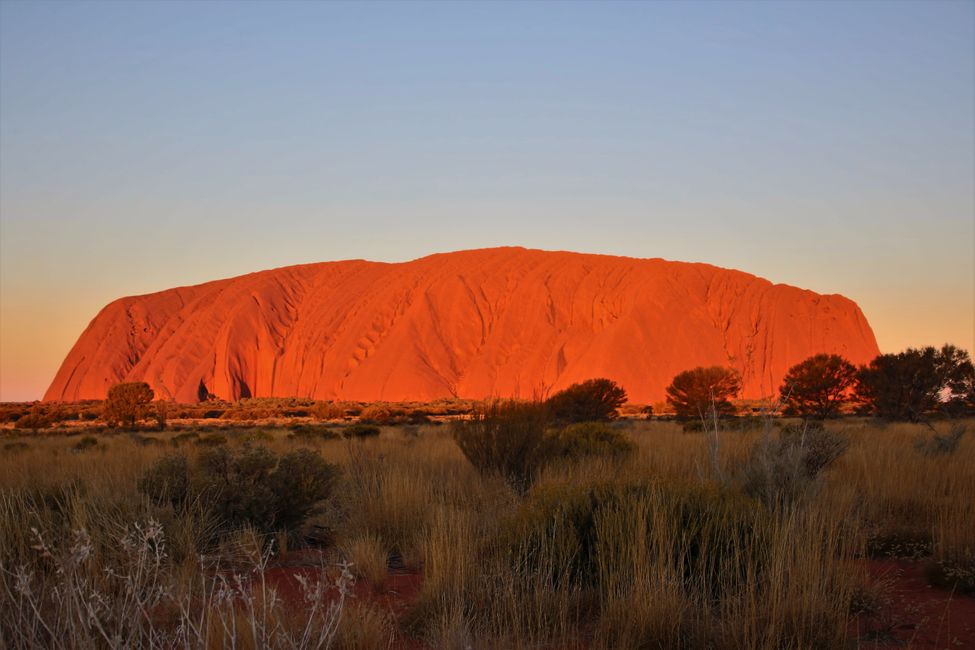
Извештаји о путовањима Аустралија
